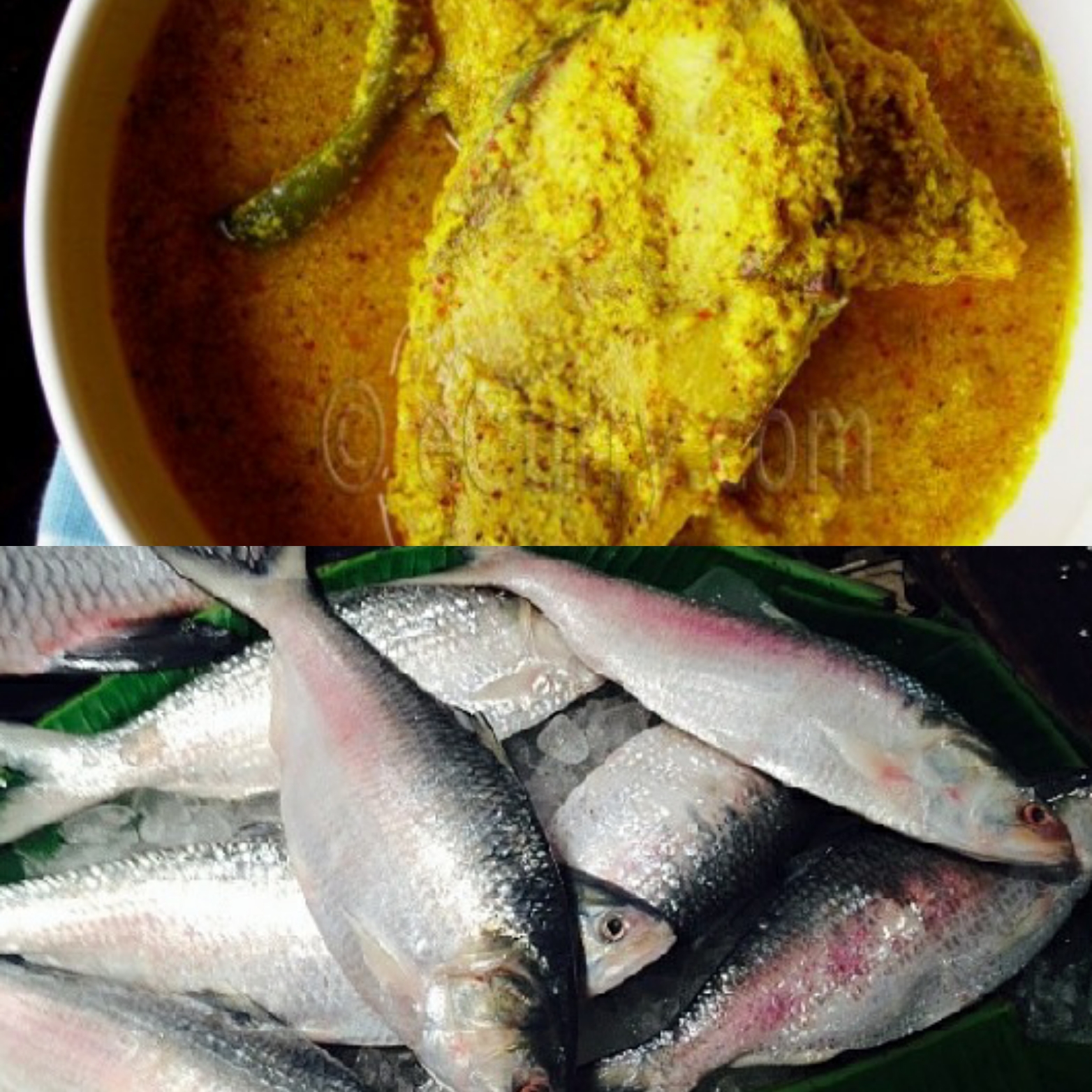Kolkata, is a city of culture and passion. And its average citizen is motivated by good music, books and sports. But, nothing motivates them more than good food. Especially a delectable fish recipe. And when we are talking about fish, how can we not mention the special one, Ilish or Hilsha, as you call it. One true love for the fish crazy city.
A typical Bengali will devour his Ilish and Chingri(Prawn) with utmost passion and that does not require any special occasion. For a Bengali, Ilish or Hilsa is not just a fish, it’s an emotion. Decades of Hilsa adoration in Bengalis have ingrained this fish into a glorious part of their lifestyle, culture and heritage. Or else how can you have an entire festival dedicated to a specific fish.
The advent of monsoon sees festivals dedicated to Hilsa in the city by various private organizations, hotels and even West Bengal State Tourism department, such as – Ilish Utsav or Gongabokhhe Ilish Utsab. Some startups are even giving online delivery of the shiny silver treasure. But, an average Kolkata resident would prefer going to the market, feel the shining silvery fishes with their own hand, weigh them, then try to bargain in vain and ultimately buying them at an absurd, high price and yet return home like a winner. After all, buying a good fish is nothing but, an important art.
During the rainy season, it is considered to be the most wanted delicacy, meant to stoke the taste buds of the Bengali palate. And there would be conversations and comparisons about the quality of the Ilish maach among masses. A good supply of fish to the market would make its way to the newspaper and local news channel. It will be a part of daily discussions. Like, my husband would call up his father every time he thinks he made a great buy of the fish and declare about his feat, and would be bombarded with queries about the weight, price, quality. My mother would call me up to relay what a great feast of hilsha have flooded the Lake market and if our local bazaar is offering the same.
But just to be clear, not only monsoon this savoury dish adorns the table in any important function like wedding, rice ceremony or jamai sosthi (a special day to celebrate the son-in-laws).
The precious commodity lends itself excellently to nose-to-tail cooking. It can be eaten fried, smoked, dried, in a plain or a mustard gravy. In short, there is no one way to devour it and no part of it goes to waste, including the bones or the oil it has been fried in.
People outside Bengal may find it astonishing, but, it is a part of Lakshmi Puja and Saraswati Puja celebration. “Jora Ilish” (two Hilsha) are offered to the goddesses as a part of the worship ritual. As the Goddess Durga, the mother doesn’t mind or curse the devotees for eating non-vegetarian food during the four-day carnival, so are the two daughters, quite liberal with their choices.
The pious fishes have time and again found mention in the literature and Bengali movies. My earliest connection being the chapter of “Padma Nadir Majhi” by Manik Bandopadhyay which was a part of our syllabus in class X. An entire chapter, describing the art of fishing, the lives of these fishermen surviving on the supply of these silver treasures. And we love it so very much, that we have romantically linked it with the soft drizzles of rain, calling it “Ilshe Guri”. As I earlier said, the fish has conquered the gastronomically inclined Bengalis’ stomach and heart, together.
I, an otherwise fish recluse (yes, yes, I know, a disgrace to Bengali community), found it too bony a fish and lacked the patience to eat it in my younger days. My mother always had to help me to skin it. But, with time I learnt to relish it and guess which is the first fish delicacy I tried to cook by myself? Ilish Bhapa. Recipe can be shared on demand. So as I, relish my lockdown dinner, with meagre fish supplies ( ilish is a dream now), I bid adieu for the day.
Note: This blog is a part of #BlogchatterA2Z challenge.


Hi. First time on your blog. I’m a veg but my husband does a good job with all the fish and chicken stuff. I’m passing this on to him. Best wishes. Will look up the other stuff on the blog.
Thanks a lot… And do share your feedback about the other blogs too
I despite being a vegetarian wanted to read this post, because reading about illish from your viewpoint was too tempting. And you haven’t disappointed at all. Enjoyed reading the post.
Thanks a lot….
Ive read so much about it over the years but never had the chance to taste it… we dont get hilsa in kerala though similar members of the family exist
Godyears.net
May be you should visit Kolkata once for an authentic dish… Thanks for visiting the blog…
Hahaah! I know this love affair of ilish and Bengalis so very well. During my college day in Bangalore, my bestie would force me to brave 1.5 hours of bus ride to visit the Bengali community temple during Durga Puja just to relish the fish. I am a chicken person, hence I never understood this crazy connection, until I experienced the pandal full of fish lovers.
Lovely post.
Thank you for reading…
Excellent mouthwatering read. For us in Mumbai, Hilaa fish is little sweet compared to the salt water fish we are used to eating. I understand, the Bengalis consider it to be a veg dush.
Ilish offered to God is veg dish otherwise it is non veg.. same with mutton offered to Ma Kali…